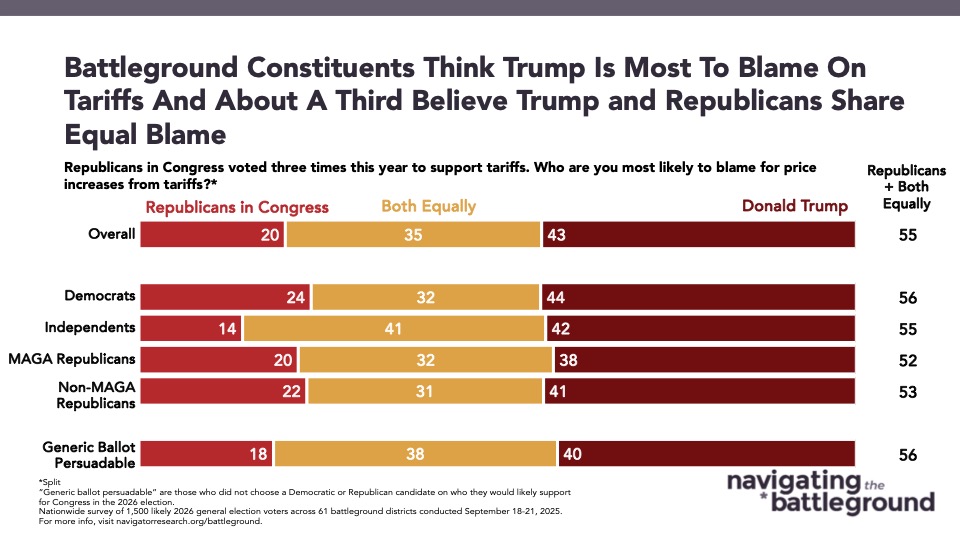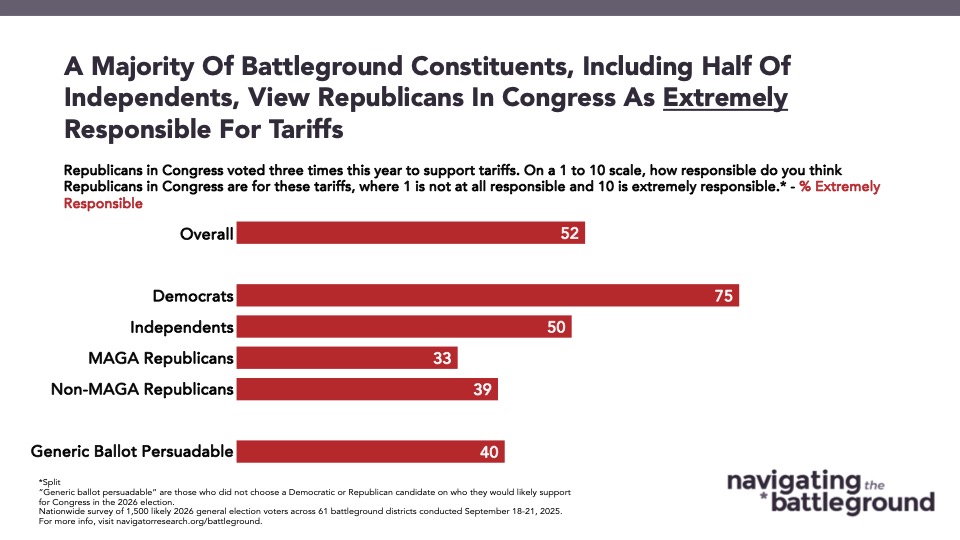Poll: Tariffs
This Navigator Research report covers perceptions of tariffs in the House battleground.
Seven in ten believe tariffs have increased costs, and half believe the worst of cost increases is yet to come. Americans living in the House battleground are clear on the impact tariffs are having on their lives with 69 percent believing tariffs have increased costs. They are also clear on who’s causing it. 54 percent of battleground constituents say President Trump’s policies are making costs go up, including 60 percent of independents. 50 percent of battleground constituents believe the worst of cost increases is yet to come, including 52 percent of generic ballot persuadables in the survey.
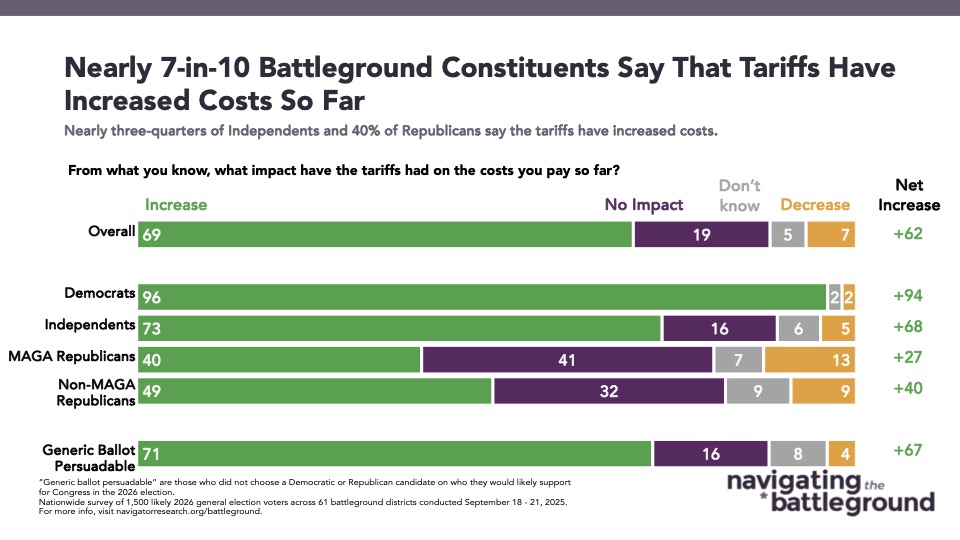
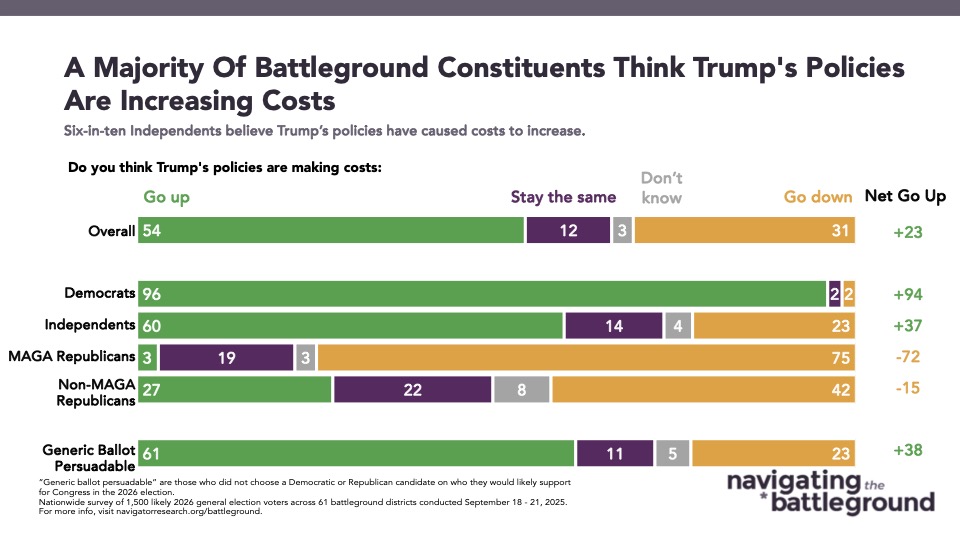
Grocery costs are seen as increasing the most as a result of tariffs – and are seen as mattering the most to battleground Americans’ budgets. Food cost increases have been felt most acutely, with 54 percent of battleground constituents believing the cost of groceries has increased the most as a result of tariffs. Other categories of goods fall well behind, with the next leading cost increase coming from imported goods at 12 percent and cars and auto parts at 9 percent.
Rising food costs are particularly impactful for battleground constituents because 87 percent say groceries matter most to their personal budget. This is followed by utilities and health insurance at 59 percent and 35 percent, respectively.
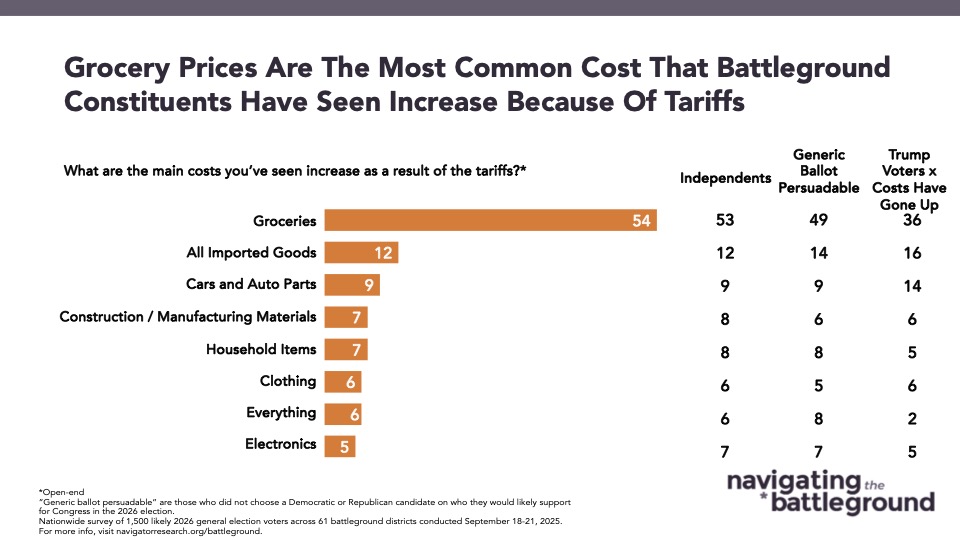
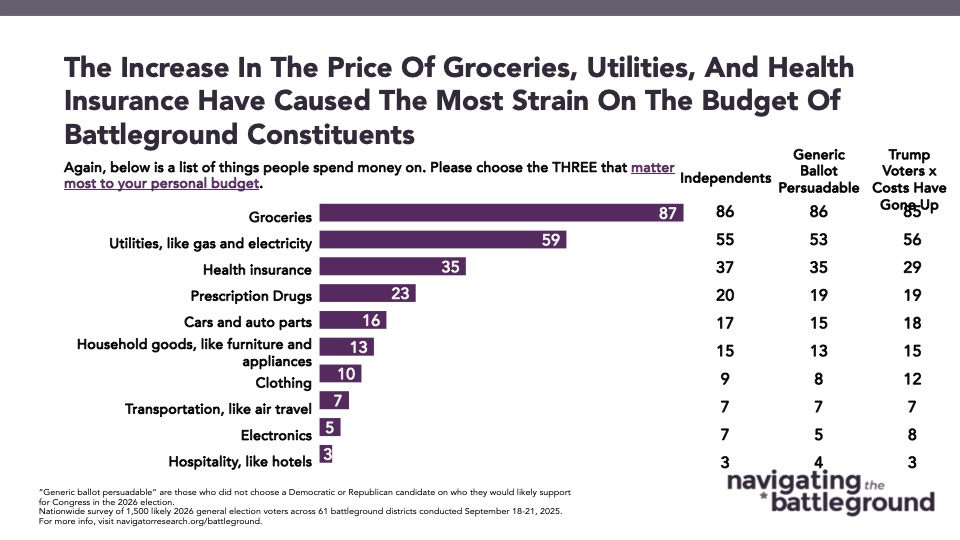
Battleground constituents believe Donald Trump is most to blame for price increases from tariffs. 43 percent believe Donald Trump is to blame for price increases from tariffs while 35 percent blame congressional Republicans and Trump equally. Only 20 percent blame congressional Republicans exclusively for price increases from tariffs. After learning Republicans in Congress have voted three times this year to support tariffs, 52 percent of battleground constituents believe Republicans in Congress are “extremely responsible” for tariffs, including 50 percent of independents.
